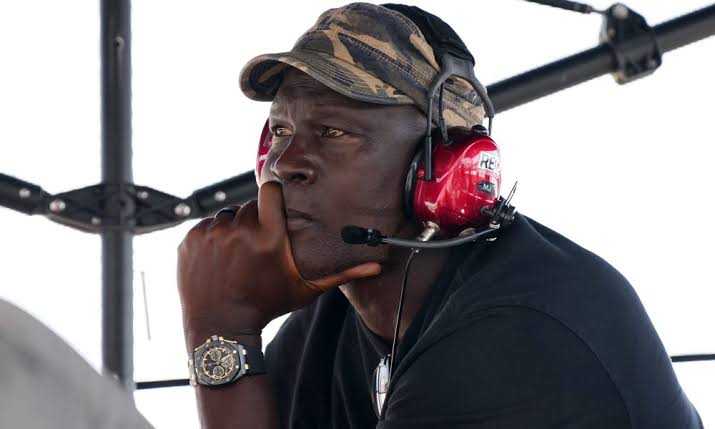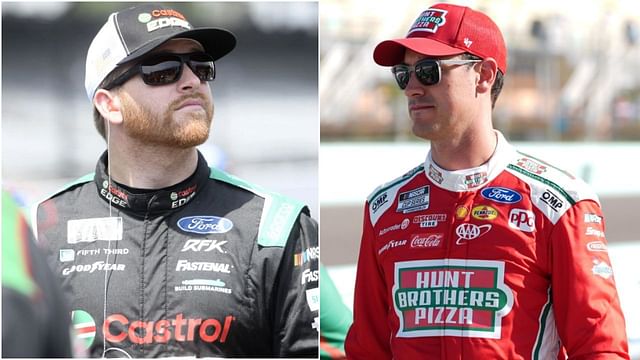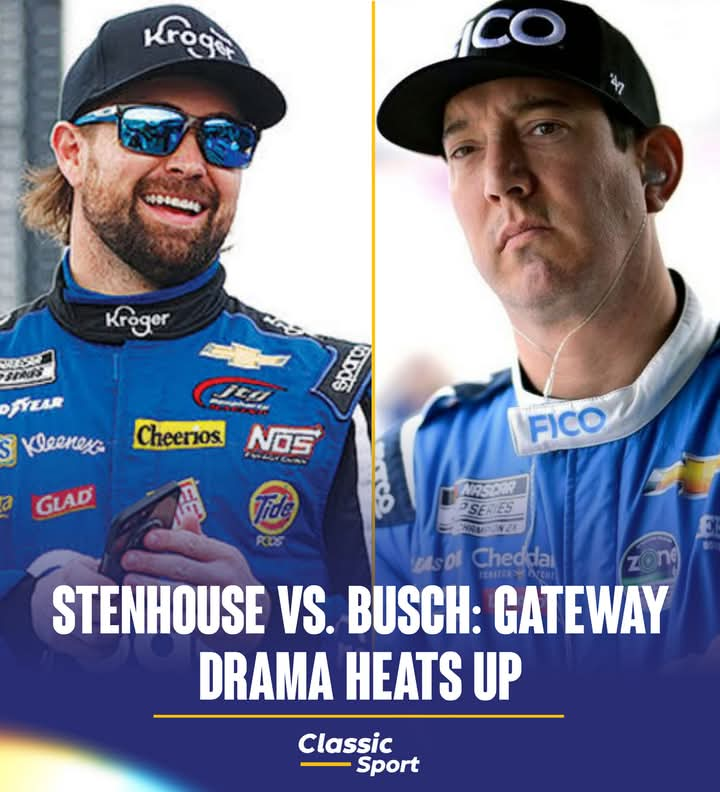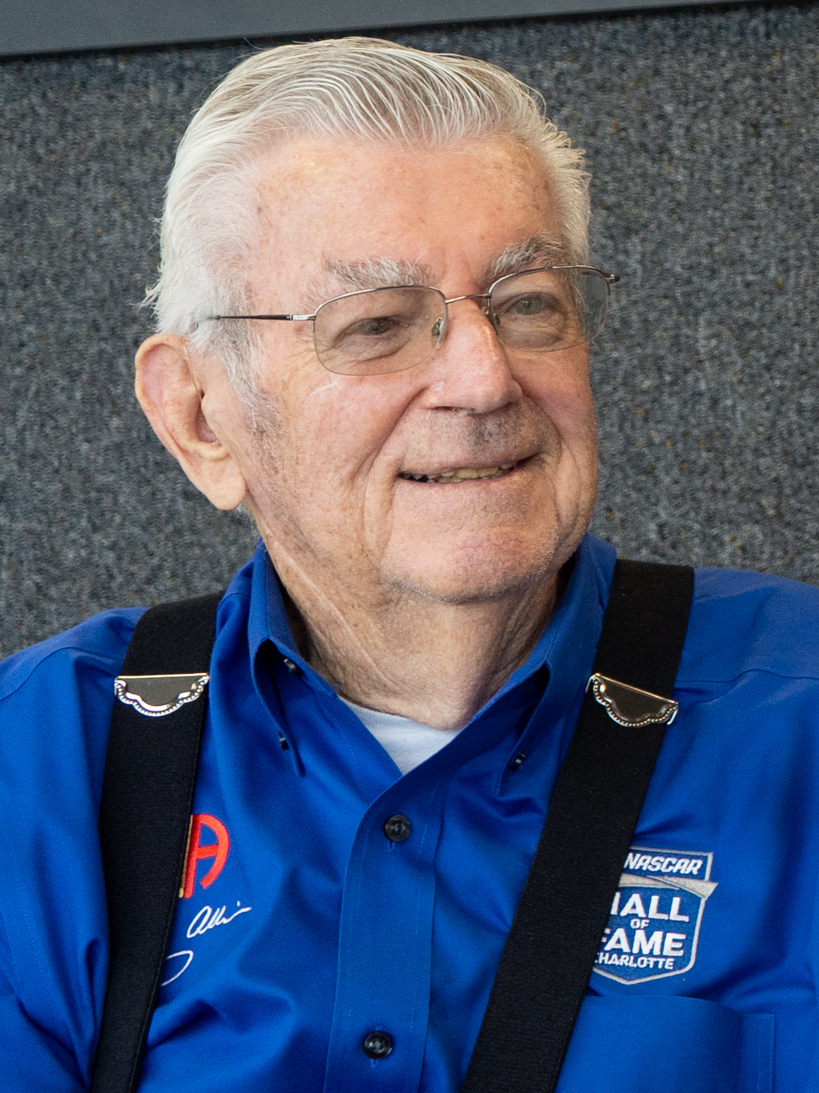In an industry where partnerships are key to success, NASCAR’s recent decision to reject a collaboration with Michael Jordan and Front Row Motorsports (FRM) has shocked many within the motorsport world. The proposed deal, which could have reshaped the landscape of NASCAR racing, was seen as a potential game-changer in a sport that thrives on sponsorships, strategic alliances, and high-profile collaborations. However, underlying tensions stemming from a two-year feud between teams, owners, and stakeholders have seemingly derailed the opportunity, leaving fans and analysts wondering about the long-term impact on the sport.
The Rise of Michael Jordan in NASCAR
Michael Jordan, one of the most iconic sports figures of all time, ventured into the world of NASCAR in 2020 by forming 23XI Racing alongside NASCAR driver Denny Hamlin. The entry of Jordan into the sport was viewed as a historic moment for NASCAR, not only because of Jordan’s fame but also due to the broader cultural significance. Jordan’s involvement brought increased visibility to a sport that has long struggled with diversity and attracting a wider audience.
In partnership with Hamlin, Jordan quickly made waves with the success of their team. Bubba Wallace, the primary driver for 23XI Racing, became a household name, further propelled by his advocacy for racial equality and his landmark win at Talladega Superspeedway. Jordan’s presence helped NASCAR tap into new demographics, creating interest among fans who hadn’t traditionally followed the sport.
However, despite early success, Jordan’s entry into NASCAR has not been without challenges. 23XI Racing has faced hurdles in forming key partnerships within the industry, highlighting an underlying tension between the newcomer and the established teams in NASCAR. This tension appears to have played a significant role in the rejection of a potential partnership between Jordan, FRM, and other NASCAR teams.
Front Row Motorsports, a well-known entity in the NASCAR Cup Series, has also faced its share of challenges in recent years. Founded in 2005 by Bob Jenkins, FRM has long been a staple of the sport, known for its commitment to competing at a high level despite being a mid-tier team. While FRM hasn’t always been a dominant force, the team’s steady progress and occasional successes have earned them respect within the industry.
FRM’s ongoing efforts to solidify its standing have led to attempts at forming strategic partnerships, particularly with newer entities like 23XI Racing. A collaboration between Michael Jordan’s rising team and the more established FRM could have offered mutual benefits, such as greater sponsorship opportunities and improved performance on the track. Nonetheless, despite these potential advantages, other NASCAR teams have reportedly been hesitant to endorse the partnership.
The Root of the Two-Year Feud
To understand why teams would reject a deal with Jordan and FRM, it’s important to delve into the origins of the feud that has been brewing over the last two years. According to multiple reports, tension between Jordan’s 23XI Racing and some established teams can be traced back to several key events.
First, Jordan’s high-profile entry into the sport disrupted the traditional NASCAR hierarchy. Established teams, who have long relied on decades-old relationships with sponsors, drivers, and stakeholders, were wary of the immediate spotlight and resources that Jordan’s team was able to attract. Some owners expressed concerns about the long-term implications of a celebrity figure being so prominently involved, worrying that Jordan’s influence could shift power dynamics within the sport.
Additionally, disagreements over revenue sharing and sponsorship opportunities have exacerbated the divide. NASCAR’s sponsorship model is complex, with teams vying for deals from major corporations. Jordan’s business acumen and connections opened doors for his team that other owners felt were harder to access, fueling a sense of inequity.
Moreover, differences in management style between Jordan’s 23XI Racing and more traditional teams have played a role in widening the rift. Jordan, known for his no-nonsense approach and competitive nature, has demanded results from the outset, often pushing his team hard to achieve success quickly. In contrast, other teams have taken a more patient, long-term approach to building their organizations, which has caused friction when it comes to sharing resources or forming alliances.
The most significant incident, however, occurred during the 2022 season when 23XI Racing and another high-profile team reportedly clashed over sponsorship rights and access to key resources. This disagreement escalated into public tension, and although efforts were made to resolve the issue behind closed doors, the relationship between the involved parties has remained strained ever since.
Failed Partnership Talks: What Went Wrong?
Despite the benefits that a partnership between Michael Jordan, FRM, and other NASCAR teams could offer, the ongoing feud appears to have been too significant to overcome. Sources close to the negotiations indicate that trust issues between the parties involved were the primary reason for the rejection. Team owners were reportedly unwilling to form an alliance with Jordan due to fears that he would dominate negotiations and ultimately control the direction of the partnership.
Concerns were also raised about the long-term sustainability of such a collaboration. Given the already competitive nature of sponsorship deals in NASCAR, many teams feared that a partnership with Jordan and FRM would only further concentrate resources in the hands of a few select entities, leaving smaller teams struggling to compete.
Furthermore, the lingering tension from past incidents likely made it difficult for both sides to approach the talks with an open mind. While it’s clear that the business case for a partnership was strong, emotions and old grievances seem to have played a decisive role in the outcome.
The Future of NASCAR Partnerships
The rejection of this high-profile partnership has sparked questions about the future of collaboration in NASCAR. In recent years, the sport has evolved, with teams increasingly relying on partnerships and alliances to compete effectively. Yet, as this situation illustrates, personal and professional conflicts can prevent even the most promising opportunities from coming to fruition.
For Michael Jordan and FRM, the failed talks may represent a temporary setback, but they will likely continue to explore other avenues for growth and collaboration within the sport. As for NASCAR teams more broadly, this situation serves as a reminder that navigating the intricate web of relationships, business deals, and sponsorships is no easy task.
The rejection of a partnership between Michael Jordan, Front Row Motorsports, and other NASCAR teams highlights the complex dynamics at play in the world of motorsport. While such a collaboration could have had significant benefits for all involved, the long-standing feud and lack of trust between the parties ultimately derailed the deal. As NASCAR continues to evolve, it will be interesting to see how these tensions influence future partnerships and whether Michael Jordan’s presence in the sport will lead to further shifts in the industry’s balance of power.
For now, the road ahead remains uncertain, but one thing is clear: NASCAR’s future will be shaped by both its ability to embrace new voices like Jordan’s and its capacity to resolve internal disputes that threaten progress.
NASCAR Teams Reject Partnership with Michael Jordan and FRM Amid Ongoing Two-Year Feud




